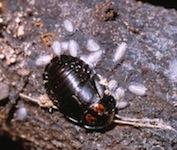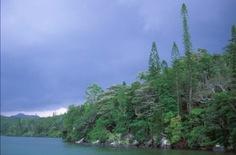
Philippe GRANDCOLAS



45 rue Buffon
CP50
75005 Paris
Directeur de recherche UMR 7205 ISYEB CNRS, MNHN, EPHE, Sorbonne Université, Université des Antilles
Institut de Systématique, Evolution, Biodiversité, équipe EvofoncT
Directeur Adjoint Scientifique de l’Institut Ecologie et Environnement du CNRS - INEE
Senior Research Scientist, Team “Evofonct” in Isyeb
Membre, Conseil scientifique, Fondation pour la Recherche sur la Biodiversité, FRB
Membre, conseil scientifique CEEBIOS
Vice-Chair, Scientific Council, GBIF
Président, Conseil Scientifique, Sud Expert Plante Développement durable SEP2D
My research focuses on the phylogenetic analysis of evolution and is aimed at reconciling the approaches developed for building trees on the one side and those developed for using trees on the other side. The rationale of such a reconciliation is to conduct conservative tests of evolutionary hypotheses (“scenarios”) and to provide the best biodiversity sampling possible according to taxonomic knowledge. In this framework, I contributed to the concept of phylogenetic tests of evolutionary scenarios (e.g., Grandcolas, 1997 ; Grandcolas et al., 2001, 2004, 2011 ; Grandcolas & D’Haese, 2003) and I studied the evolution of behavior in Dictyopteran Insects (e.g., Grandcolas, 1998 ; Grandcolas & Deleporte, 1996 ; Legendre et al., 2008, 2013 ; Pellens et al., 2002, 2007).
These phylogenetic and comparative approaches were rooted in systematic studies and field sampling of cockroaches, with varied contributions to their taxonomy, behavior and classification (e.g., Grandcolas, 1994, 1996, 1997). During the last years, developing such approaches has been made in collaboration with the colleagues from my former team “Phylevo” and the present team “Evofonct” headed by Frédéric Legendre. In doing so, we consider the fundamental need for making available the biodiversity data through the taxonomic system, the collections and associated data bases, concerning fossil and present species, and morphological molecular or behavioral data.

More recently, I contributed to the phylogenetic analysis of the origin of island biota with the study of the special case of New Caledonia. “Island” is a polysemic term used for both small continents or ephemeral “oceanic” terrestrial landscapes and the theories of island biogeography are still in need of important clarification. New Caledonia is particularly interesting in this respect, since it was considered continental on a misunderstood geological basis but should actually be regarded as an old oceanic island. It offers then a great opportunity to understand how to analyse and date the origin of the biota without being trapped in diverse ad hoc assumptions of dispersal or vicariance (e.g., Murienne et al., 2005 ; Grandcolas et al., 2008 ; Nattier et al., 2011).

MNHN - Pour que nature vive : Mieux connaître la nature pour mieux la préserver (octobre 2020)
MNHN - Les blattes et les hommes, histoire d’une amitié involontaire (2017)
Covid-19 ou la pandémie d’une biodiversité maltraitée (co-écrit avec Jean-Lou Justine, Professeur de parasitologie, mars 2020)
Après le rapport de l’IPBES, trouver des pistes pour sauver la biodiversité (juillet 2019)
Rapport de l’IPBES sur la biodiversité : l’heure n’est plus aux demi-mesures (mai 2019)
Qu’est-ce qui tue les insectes ? (février 2019)
Après l’incendie du Museu Nacional de Rio : que faire maintenant ? (avril 2019)
Podcast : des ressources naturelles jusqu’à quand ? (juin 2017)
Libération - Au nom de la Terre - “Biodiversité : c’est bienfaits pour nous !” (aout 2020)
Libération - La biodiversité, parent pauvre de la recherche (avril 2020)
Libération - Les dossiers du fil vert - “La biodiversité, mal connue et mal préservée” (avril 2020)
La Tribune - Covid-19 : les atteintes à la biodiversité ont accéléré l’épidémie (mars 2020)
Madame Figaro - “Nous devons adopter D’URGENCE une autre relation à la BIODIVERSITÉ” (avril 2020)
La Croix - Coronavirus : une pandémie intimement liée à l’environnement (avril 2020)
Infos France 2 - Pourquoi le déclin de la biodiversité favorise-t-il la propagation des virus tels que le Covid19 ou le SRAS ? (avril 2020)
France classique - 3 minutes pour la planète : l’été noir en Australie (2020)
France 24 - Incendies en Australie : plus d’un milliard d’animaux ont déja péri dans les feux (janvier 2020)
France Inter - La Terre au carré : La disparition des arthropodes (décembre 2019)
France Inter - La Tête au carré : La disparition des insectes (février 2019)
France culture - l’invité des matins : À qui appartient l’Amazonie ? (aout 2019)
––––
Despite the many advances of the genomic era, there is a persistent problem in assessing the uncertainty of… Molecular Phylogenetics and Evolution vol. 200, , p. 108177 ISBN: 1055-7903 Publisher: Elsevier Type: 10.1016/j.ympev.2024.108177